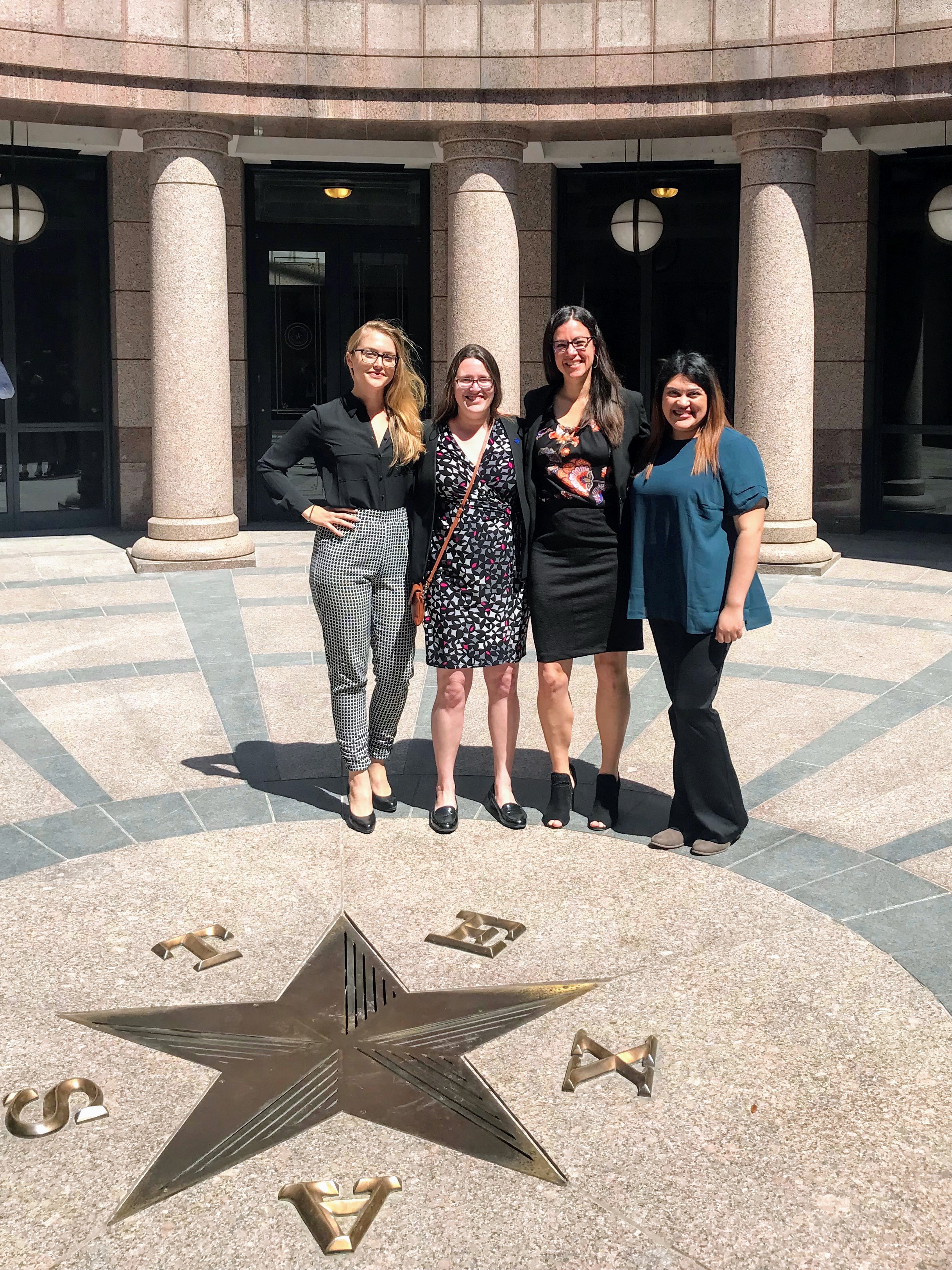Legislation can help SAFE Institute’s BASE Training Program prevent workplace harassment
Written by Joell Beagle
The following was adapted from testimony given to members of the Texas House of Representatives by SAFE Training and Engagement Specialist Joell Beagle.
Before coming to SAFE, I worked in a small business where everyone knew each other. We spent the majority of our week together, either during the same shifts or socializing afterwards. It was often a mixture of the two.
Our staff became a family. While this came with all the benefits that word might connote, it is important to understand that families can also be dysfunctional. One of the key managers started dating an employee. If this was not complicated enough, he was also the person tasked with handling sexual harassment claims, coordinating everyone’s shifts, and reviewing biannual raises.
His role held tremendous power and tremendous potential for abuse. This case is not abnormal for small businesses across our state. It’s the type of thing HB 2279 could make a difference in.
Under current legislation, employees are not protected legally from sexual harassment unless they work for an employer that has 15 or more employees. Under HB 2279, the threshold for legal protection will be lowered. This bill redefines an “employer” as someone who employees 1 or more people — a change that could dramatically help protect employees from harassment in small businesses.
The BASE Program at SAFE Institute
Historically, SAFE has focused on – and continues to focus on – child abuse, sexual assault, domestic violence, and sex trafficking. Sexual violence exists along a continuum with these more egregious forms living at the top. At its foundational levels, it begins with the social norms of entitlement, invasion of personal space, unwanted sexual touch, and sexual harassment.
About a year ago, SAFE launched the SAFE Institute, a new professional services branch aimed at creating respectful, safe organizations. The BASE program is specifically geared to workplace environments, and the premier training program is designed to cultivate safe and respectful workplace culture by training employees to prevent, interrupt, and respond to sexual harassment. Businesses and nonprofits throughout Central Texas have called us to request trainings, many of which have reached out following an inciting incident.
Sexual harassment crops up in every size business, big and small.
We see the need in our community
Every week another Central Texas company calls SAFE Institute to request BASE Training Program. Just recently a small local restaurant reached out following an unfortunate series of events between their head cook and a line cook.
The head cook chose to use their position of power to make lewd comments and inappropriate proposals. Frustrated and uncomfortable, the line cook approached the owner ready to quit.
In this instance, the owner knew to come to SAFE and get help. We provided guidance on their code of conduct and held a full-staff sexual harassment prevention training. The head cook decided to leave the company while the line cook stayed on.
That situation improved, but how often does this happen? The reality is that in most cases the person who experiences sexual harassment in a small business will have to leave the company and find another job. There is no other option for them currently.
Recently a friend of mine was forced to leave her job of nearly two years. She worked at an Austin tech company with fewer than 10 employees and experienced pervasive sexual harassment.
As a form of risk reduction, she started to alter her appearance. Known for her designer style, she began dressing down and going without makeup, trying anything to deflect attention from herself.
The harassment was hostile and pervasive, creating a toxic environment not only for her but for those around her. Over the months, I watched the light in this brilliant woman begin to dim. It is exhausting being on the defensive five days out of your week.
At its worst, my friend looked into her options and found she had no legal recourse. Her employer was too small to be held liable for their actions. Her only recourse was to leave. This should never be the case.
We do what we can at SAFE Institute, but we need help. That’s where effective legislation comes in. That’s why we stand in support of HB 2279. Bills like this can help people like my friend and countless others be protected from sexual harassment in their workplace. The size of the company should not determine if someone who chooses to harass can be held responsible for their actions.
Protection from harassment should be a right, not a hope.